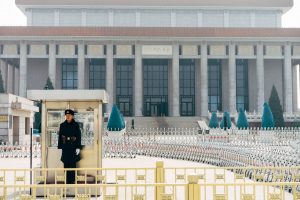Asian nations have experienced a broad and continued contraction of the political space and civil liberties over the past year, according to the latest global survey by the CIVICUS Monitor, a global platform tracking civic space and civil society.
The annual report tracks respect for fundamental freedoms in 196 countries, grouping them into one of five categories: “open,” “narrowed,” “obstructed,” “restricted,” or “closed.” This year’s report shows that basic freedoms are backsliding across the globe. In total, just 13 percent of the world’s population currently lives in nations classified as “open” or “narrowed.”
The Asia-Pacific section of the report makes for particularly deflating reading. According to CIVICUS, out of 25 countries in Asia, only Taiwan is rated “open.” Meanwhile, nine nations are classified as “obstructed,” nine as “repressed,” and four – China, Vietnam, Laos, and North Korea – as “closed.”
“Our research shows that civic freedoms, including the freedoms of expression, assembly and association, continue to be violated across the region.,” Josef Benedict, Asia-Pacific Civic Space Researcher for CIVICUS, said in a statement that accompanied the report’s release. “The percentage of people living in Asian countries with closed, repressed or obstructed civic space is nearly 90 percent.”
The story is slightly more positive in the Pacific, where eight countries are rated as “open,” while three are rated as “narrowed.” Fiji, Nauru, and Papua New Guinea remain in the obstructed category.
In Asia, every repressive nation is repressive in its own way. Some governments have increased direct attacks on the civic space, harassing activists, breaking up demonstrations, and physically attacking protesters, journalists, and bloggers. In other instances, this repression has been given the gleam and patina of law, as administrations have passed draconian legislation and weaponized legal systems to quash the activities of dissenting individuals and opponents of concentrated power. This finding is consistent with the region’s shift from the blunt, open authoritarianism of a previous age to a more supple, sophisticated form of control that veils itself in the legitimizing cloak of democratic elections.
Much of the recent Asian repression has been justified on the grounds of the coronavirus pandemic, which has provided cover for the introduction of extraordinary powers. While these are theoretically legitimate response to a serious public health crisis, many have been used to restrict legitimate political expression. According to the report, “repressive governments used the pandemic as an opportunity to introduce or implement additional restrictions on civic freedoms.”
This was true in Asia, as discussed recently in these pages by Joshua Kurlantzick with reference to Southeast Asia. “Across the region,” Kurlantzick wrote, “autocratic leaders, some of whom are illiberal populists, have used the pandemic as an opportunity to consolidate political power, regardless of whether these actions contribute to actual public health responses.”
Reflecting many of these trends is the Philippines under President Rodrigo Duterte, which saw its designation downgraded from “obstructed” to “repressed” this year. While the country has been on a steady decline since Duterte came to office in 2016, things have worsened considerably in 2020.
CIVICUS cited the Duterte administration’s onslaught on the Philippines’ stridently independent press, which have included the forced closure of the ABS-CBN network, and the conviction of Rappler journalist Maria Ressa on a bogus “cyber-libel” charge. The report also cited the passage in July of a new anti-terrorism law that grants law enforcement exhaustive powers and provides few safeguards against abuse, “leaving it open to exploitation by those seeking to silence dissent.”
“In 2020, we have seen systematic intimidation, attacks and vilification of civil society and activists, an increased crackdown on press freedoms and a pervasive culture of impunity take root,” said Benedict.
Philippine citizens – and their counterparts in other parts of Asia – can only hope that longer term trends are more promising.

































